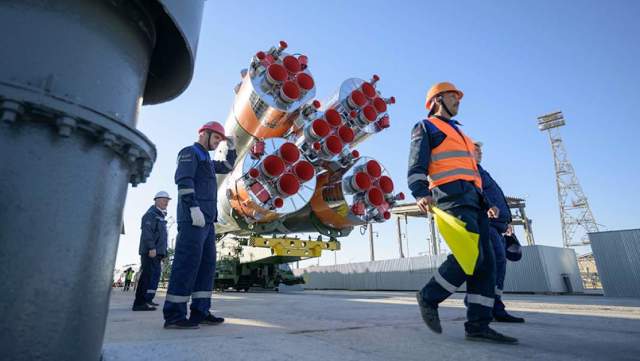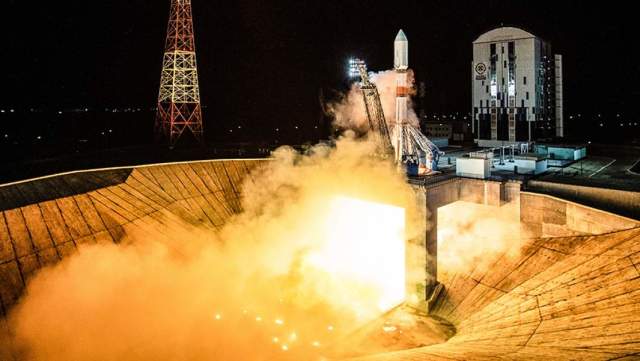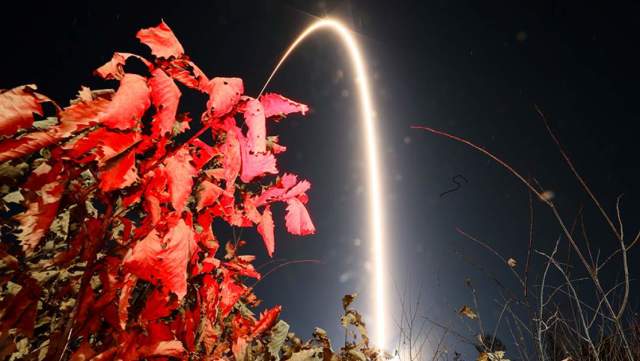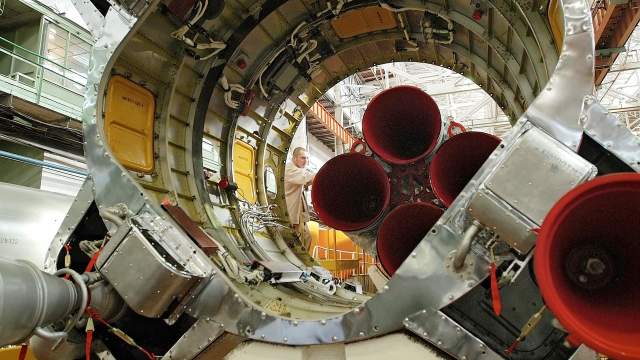How the new technology will protect the crews of lunar expeditionsRussian scientists are developing a system for dumping fuel residues from spent rocket engines in zero gravity.
Fuel often causes explosions. To get rid of it, they plan to convert the liquid into gas, and then send it into an airless space. This will avoid accidents in orbit during future manned expeditions to the Moon or Mars, as well as fires in places where the steps fall. According to experts, the engines used for space flights are designed in such a way that it is impossible to use up all the fuel in them. The remaining part of the fuel is a problem, so the technology proposed by scientists will be in demand.
Fuel injection
Specialists of Omsk State Technical University (OmSTU) are developing a technology for the release of unused rocket fuel in zero gravity. It is difficult to get rid of it because of the lack of gravity there. The fuel remains in the container in the form of droplets partially stuck to the walls. Scientists propose to convert it into a gaseous state. After that, the gas from the tank can simply be removed into an airless space. It is necessary to remove flammable and explosive substances in rocket engines in order to reduce the risk of accidents. Untreated fuel often causes fires.

Photo: TASS/Zuma
Image source: iz.ru
— A vortex gas dynamic pattern appears inside the tank. By supplying air, it is additionally affected with a certain power, which helps to improve the crushing of the liquid in the vortex effect to small droplets. Then the resulting gas-liquid mixture is blown through a gas generator (part of a rocket engine where the liquid is converted into gas. — "Izvestia"), — said Valery Trushlyakov, professor of the Department of Aviation and Rocket Engineering at OmSTU.
Abnormal situations due to fuel residues occur most often after undocking and disconnecting the engines, when they descend into the atmosphere or hit the ground. According to scientists, 70% of cases of falling stages of Soyuz-2 rockets, which are now actively used in Russia for space launches, end in fires. This is often due to the use of hydrogen peroxide in the device to produce gas that rotates the turbines of the fuel pumps of the engines. Peroxide interacts with fuel and as a result, an explosion occurs after a collision with the Earth's surface. Elements of missiles launched by our country fall in the taiga or steppe and cause fires, which can lead to significant damage.
Safety issues are particularly acute during manned flights, since any overlays can lead to the death of people. For this reason, when sending crews to the Moon, Mars or other objects, it is better to equip aircraft engines with a system for dumping unprocessed fuel.
— During the implementation of future expeditions, in order to reduce the risk of emergency situations, a fuel discharge operation should be carried out. If some kind of accident happens, before starting to rescue the crew, there should be no high—energy residues in the tanks," Valery Trushlyakov said.

Photo: TASS/Sergey Savostyanov
Image source: iz.ru
The developers plan to create a physical model of the process of conversion to gas and fuel release, as well as conducting experiments in zero gravity, where water will act as an analogue of fuel. To simulate space conditions, it is planned to use the Il-76MDK aircraft laboratory, where it is possible to achieve the effect of the absence of gravity. Ultimately, scientists intend to create a functioning on-board system for the release of fuel residues.
Non-combustible residue
Completely, as it happens in a car, it is impossible to use fuel in a rocket engine, Andrei Ionin, a corresponding member of the Russian Academy of Cosmonautics named after Tsiolkovsky, told Izvestia. There is an unprocessed fuel residue in the tank. It cannot be sucked to zero, because otherwise air will get into the tank. The engine is not designed for this, so an explosion may occur. There is also a guaranteed fuel reserve, which is needed to respond to random situations in flight.
— Therefore, a certain part of the fuel always remains in the rocket, the problem of its possible ignition exists and it is necessary to look for its solution, — said Andrey Ionin.

Photo: TASS/Sergey Savostyanov
Image source: iz.ru
The issue of explosive fuel residues in rockets has been around for a long time, Alexander Zheleznyakov, an expert in the space industry, told Izvestia. According to him, there were numerous precedents when engines exploded in orbit, generating a mass of space debris. Even now, experts are trying to avoid fuel remaining in the spent stages, but this does not always succeed.
— If the stage or upper stage remains in orbit, it is necessary to remove fuel components from it. If you throw it into an airless space, most likely, it will exist there for some time in the form of ice fragments, but within a very short time it will become safe under the influence of sunlight, cosmic radiation and negative temperatures. Perhaps these substances will burn up in the upper layers of the atmosphere, — said Alexander Zheleznyakov.
The system is being developed by the university with the support of the Russian Science Foundation as part of the strategic project "Safe Space" under the program of the Ministry of Education and Science of Russia "Priority 2030".
Denis Gritsenko

